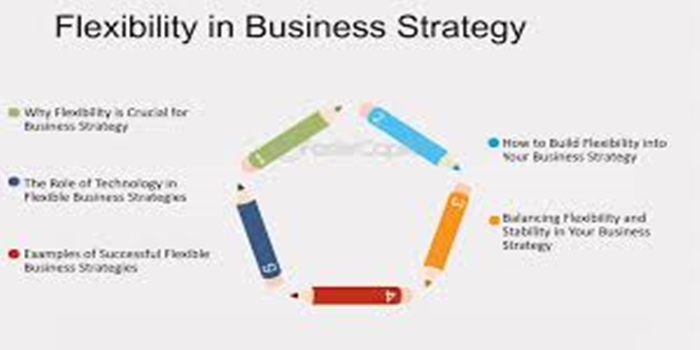In this article, we explained the meaning of flexibility in modern business operation, the importance, and we also stated the features.
Definition
In modern business operations, flexibility means the ability to adapt and respond to changes in the market, technology, and internal operations to maintain effectiveness and efficiency. It’s about being agile, proactive, and ready to adjust strategies, processes, or structures when necessary. This adaptability allows businesses to stay competitive, innovate effectively, and respond quickly to customer demands.
The Importance of Flexibility in Modern Business Operations:
Adaptability to Market Changes:
Flexibility allows businesses to react quickly to shifts in demand, competitor actions, and technological advancements. This could involve adjusting product offerings, changing business models, or implementing new pricing strategies.
Employee Satisfaction and Retention:
Offering flexible work arrangements, such as remote work options or flexible hours, can significantly improve employee satisfaction and reduce stress. This can lead to higher job satisfaction, better work-life balance, and increased retention rates.
Increased Productivity:
By empowering employees to manage their workloads and schedules, businesses can unlock greater productivity. Flexible arrangements can also reduce commuting time, enhance focus, and improve overall work efficiency.
Cost Savings:
Flexibility can also lead to cost savings for businesses, particularly through reduced overhead expenses associated with office space and utilities. Additionally, flexible work arrangements can reduce employee turnover and the associated costs of recruiting and training new hires.
Innovation and Creativity:
A flexible work environment fosters a culture that encourages innovation and creative problem-solving. Employees are more likely to experiment with new ideas and solutions when they have greater autonomy and flexibility.
Attracting Talent:
In today’s competitive job market, flexibility is a key factor in attracting and retaining top talent. Businesses that embrace flexibility are more likely to be seen as desirable employers and attract a wider pool of qualified candidates.
Operational Efficiency:
Flexible operations allow businesses to adjust to changing demands, optimize resource allocation, and streamline processes. This can lead to greater efficiency and reduced waste.
Resilience and Sustainability:
By embracing flexibility, businesses become more resilient to disruptions and can better navigate unpredictable market conditions. This allows them to adapt to challenges, minimize risks, and ensure long-term sustainability.
The Features of Flexibility in Modern Business Operations:
- Adaptability to Market Changes: Businesses must be able to quickly respond to shifts in customer preferences, technological advancements, and competitive pressures.
- Process Flexibility: This involves streamlining and optimizing internal processes to allow for efficient scaling up or down in response to demand fluctuations, as well as handling various product types simultaneously.
- Workforce Flexibility: Offering flexible work arrangements, such as remote work, flexible hours, and compressed workweeks, can enhance employee satisfaction, attract top talent, and improve productivity.
- Organizational Flexibility: This encompasses the ability to adapt organizational structures and cultures to accommodate changes in the market and internal operations.
- Strategic Flexibility: Businesses need to be able to pivot their strategies and adapt to new opportunities and challenges that arise in the marketplace.
- Technological Flexibility: Embracing new technologies and adapting existing ones can enable businesses to stay ahead of the curve and improve efficiency.
- Scalability: The ability to quickly scale operations up or down based on demand, whether it’s in terms of production, workforce, or infrastructure.
- Change Management: Having the ability to effectively manage and implement changes within the organization, including communicating them to employees and ensuring they are embraced.
Conclusion
Flexibility in modern business operations states a company’s ability to adapt to changes in its environment, market demands, and internal processes. This includes adjusting strategies, processes, and workforce structures to remain competitive and efficient.
READ: Explosive Business Growth


